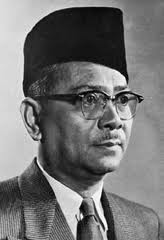 In the first decade of this century, the Sri Lankan government massacred more than 40,000 of its own citizens – men, women and children – in the final days of its war against the Liberation Tigers of Tamil Eelam (LTTE), who had been demanding for a separate for state for the Tamils for more than quarter of a century as Tamils had been systematically denied of their rights as citizens of the country by the Sinhalese majority. The UN estimates at more than 100,000 civilians killed between 1972 and 2009.
In the first decade of this century, the Sri Lankan government massacred more than 40,000 of its own citizens – men, women and children – in the final days of its war against the Liberation Tigers of Tamil Eelam (LTTE), who had been demanding for a separate for state for the Tamils for more than quarter of a century as Tamils had been systematically denied of their rights as citizens of the country by the Sinhalese majority. The UN estimates at more than 100,000 civilians killed between 1972 and 2009.
In this brutal war against its own citizens the Sri Lankan government led by Mahinda Rajapakse managed to satisfy the particular needs, like investment opportunities, of some of the countries of the world, which included Malaysia, and earned their support which continues to this day.
Channel 4 Video
President Rajapkse’s Tamil pogrom which made Adolf Hitler’s holocaust, the mass killings of the Jews by the Nazi regime during the World War II, pale into insignificance, stunned the world at large.
In addition to the factual and live reports on the Sri Lankan government’s organised attacks on its Tamil citizens since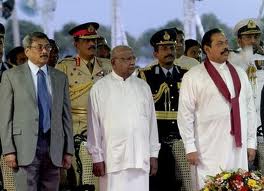 the 1980s backed by photographs and videos that were made available by the media to the concerned public throughout the world, the British Channel 4 videotape released in 2010 detailed the atrocities, mass killing and raping, committed by the Sri Lankan armed forces against the unarmed civilian Tamils, and called the bluff of the Sri Lankan government that it was only fighting the terrorists. The world saw the war crimes committed against the Tamils by the Sri Lankan armed forces acting under the direct orders of president Rajapakse and other senior government officials.
the 1980s backed by photographs and videos that were made available by the media to the concerned public throughout the world, the British Channel 4 videotape released in 2010 detailed the atrocities, mass killing and raping, committed by the Sri Lankan armed forces against the unarmed civilian Tamils, and called the bluff of the Sri Lankan government that it was only fighting the terrorists. The world saw the war crimes committed against the Tamils by the Sri Lankan armed forces acting under the direct orders of president Rajapakse and other senior government officials.
The chilling horror scenes from the Channel 4 vidotape led to the demands from the people all over the world, including Malaysians, directly and through concerned organisations that the United Nations (UN) must take necessary action to bring the Sri Lankan leaders to book for the war crimes that they had committed against their own citizens, the Tamils.
UN Panel of Experts finds Credible Allegations
 Unfortunately for the Tamils of Sri Lanka, the UN was not moving in tandem with the wishes of the common folks of the world. The permanent members of the UN Security Council – US, UK, China, France and Spain – and India were all jockeying for something for themselves out of the grave yard of human rights in Sri Lanka. Of course, Malaysia was hoping for improved investment opportunities in that Pearl of the East now tainted with the blood of the Tamils.
Unfortunately for the Tamils of Sri Lanka, the UN was not moving in tandem with the wishes of the common folks of the world. The permanent members of the UN Security Council – US, UK, China, France and Spain – and India were all jockeying for something for themselves out of the grave yard of human rights in Sri Lanka. Of course, Malaysia was hoping for improved investment opportunities in that Pearl of the East now tainted with the blood of the Tamils.
While the jockeying was going on, the Sri Lankan government took steps to ward off the mounting pressure from the international community and set up its own Lessons Learnt and Reconciliation Commission (LLRC) after the modal of the South African Truth and Reconciliation Commission.
This LLRC turned out to be sham. The Panel of Experts on Accountability later appointed by the UN unceremoniously dismissed the standing of the LLRC as follows:
“…the fails to satisfy key international standards of independence and impartiality, as it is comprised by its composition and deep-seated conflicts of interests of some of its members.…The work to-date demonstrates that the LLRC has: not conducted genuine truth seeking about what happened in the final stages of the armed conflict; not sought to investigate systematically and impartially the allegations of serious violations on both sides of the war; not employed an approach that threats victims with full respect for their dignity and their suffering; and not provided the necessary protection for witnesses, even in circumstances of actual personal risks.
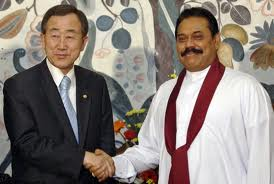 “In sum, the LLRC is deeply flawed, does not meet international standards for an effective accountability mechanism and, therefore, does not and cannot satisfy the joint commitment of the President of Sri Lanka and the Secretary General to an accountability process.”
“In sum, the LLRC is deeply flawed, does not meet international standards for an effective accountability mechanism and, therefore, does not and cannot satisfy the joint commitment of the President of Sri Lanka and the Secretary General to an accountability process.”
So, a local mechanism was not suitable for such an investigation and the world was looking for a stronger body. But the UN Secretary General Ban Ki-Moon, the former Ambassador of South Korea to India, was for some reasons dancing to the tune called by his Chief of Staff, the Indian Vijay Nambiar and did his best to avoid taking any positive move to deal with the war crimes committed by Sri Lanka.
However, the wave of anger of the common people throughout the world generated by the war crimes committed against the Tamils and the tardiness of the UN compelled Ban Ki-Moon to appoint a Panel of Experts on Accountability in Sri Lanka (POE) in June 2010 with Marzuki Darusman (Indonesia) as Chairman, Stevan Ratner (USA) and Yasmin Sooka (South Africa) as members.
The Panel of Experts in its Report submitted on 31 March 2011, found the Sri Lankan government and the LTTE responsible for 5 and 6 core categories of “potential serious violations” respectively as given below:
“…in conclusion the Panel found credible allegations that comprise five core categories of potential serious violations committed by the Government of Sri Lanka: (i) killing of civilians through widespread shelling; (ii) shelling hospitals and humanitarian objects; (iii) denial of humanitarian assistance; (iv) human rights violations suffered by victims and survivors of the conflict, including IDP (Internally Displaced Persons) and suspected LTTE cadre; and (v) human rights violations outside the conflict zone, including against the media and other critics of the Government.
The Panel’s determination of credible allegations against the LTTE associated with the final stages of the war reveal six core categories of potential serious violations: (i) using civilians as a human buffer; (ii) killing civilians attempting to flee LTTE control; (iii) using military equipment in the proximity of civilians; (iv) forced recruitment of children; (v) forced labour: and (vi) killing civilians through suicide attacks.”
The Panel also states that the accountability for serious violations of international humanitarian or human rights is not matter of choice. It says:
“Accountability for serious violations of international humanitarian or human rights law is not a matter of choice or policy; it is a duty under domestic and international law. These credibly alleged violations demand a serious investigation and the prosecution of those responsible. If proven, those most responsible, including the Sri Lanka Army Commanders and senior Government Officials, as well as military and civilian LTTE leaders, would bear criminal liability for international crimes.”
Channel 4 Again
Following on the publication of the Report by the UN Panel of Experts, the call for action to investigate “These credibly alleged violations” has become louder throughout the world, including Malaysia. Pungency is added to this call with a release of another videotape by Channel 4 which shows scenes of more atrocities, including the killing of the 12 year son of the leader of LTTE, Prabhakaran. Several gunshot wounds appear on this boy’s body which, according to forensic experts, are genuine. But as usual the Sri Lankan government has called it a “fake”.
The call for action to investigate those who violated “international humanitarian or human rights law” as recommended by the UN Panel of Experts has since 7 March, 2012 reached a pitch of excitement with the USA draft resolution submitted to the UN Human Rights Council in Geneva, of which Malaysia is a proud member “committed towards enriching the quality of dialogue, cooperation and action aimed at advancing the promotion and protection of human rights globally”, as claimed by a Malaysian representative upon Malaysia’s election to the Council in May, 2010.
The American draft resolution is not seeking the President of Sri Lanka to be put on electric chair for the “potential serious violations of international humanitarian or human rights law”. It is just seeking the cooperation of the Sri Lankan government to investigate the “potential serious violations” committed by all the parties engaged in the final phase of the war in Sri Lanka and to work closely with the UN Human Rights Council to ensure the implementation of the terms of the resolution.
The Sri Lankan government appears to be shell shocked over this resolution and is all out to ensure its defeat. Of the 47 members of the Council, about 20 plus are said to be in support of the resolution. For its adoption 24 votes are required. USA has brought in 100 over staff to manage its campaign for its adoption. The Chairman of the UN Panel of Experts, Marzuki Daruman, has been in Geneva presenting his case for its adoption. The resolution is expected to come up for debate and vote either on 22nd or 23rd of this month.
Malaysia: Follow Tunku
The question that haunts the Malaysians is the stand of Malaysia on this resolution. Is it for it or against it? For all intense and purpose, it appears Malaysia is against the resolution and will therefore vote against it.
How could Malaysia that is publicly “committed towards enriching the quality of dialogue, cooperation and action aimed at advancing the promotion and protection of human rights globally” vote against a resolution seeking investigations into credible allegations and cooperation of the country against which such allegations have been made?
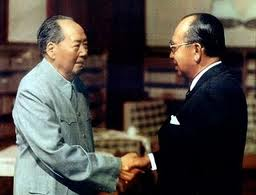 It is also claimed that any such investigations would mean interference in the internal affairs, in this case, of Sri Lanka. Has this been the traditional policy of the government of this country?
It is also claimed that any such investigations would mean interference in the internal affairs, in this case, of Sri Lanka. Has this been the traditional policy of the government of this country?
Malaysia’s interference or otherwise of a country’s so-called internal affairs and shaking the hands of and embracing a Mau or a Mandela, the ex-terrorists according to their enemies, had depended on the taste buds of its leaders.
It is good to recall the heroic welcome given to Prime Minister Tunku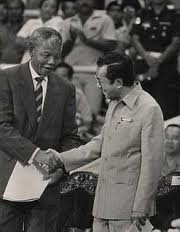 Abdul Rahman at our airport in the 1960s upon his return from London where at the Common Wealth Prime Ministers Conference he successfully moved a motion to expel South Africa from the Commonwealth for its apartheid policy. Would anyone say it was interference in the internal affairs of South Africa? Abdul Razak and Mahathir Mohammed shaking the hands of the so-called terrorists Mau and Mandela respectively were acceptable because it suited these leaders. What about Malaysia’s interference in the internal affairs of Myanmar and the Philippines, Israel and Palestine?
Abdul Rahman at our airport in the 1960s upon his return from London where at the Common Wealth Prime Ministers Conference he successfully moved a motion to expel South Africa from the Commonwealth for its apartheid policy. Would anyone say it was interference in the internal affairs of South Africa? Abdul Razak and Mahathir Mohammed shaking the hands of the so-called terrorists Mau and Mandela respectively were acceptable because it suited these leaders. What about Malaysia’s interference in the internal affairs of Myanmar and the Philippines, Israel and Palestine?
Now, on the call to expel Sri Lanka from the Commonwealth for inflicting cruelty upon its citizens as the South African white regime did to the Black citizens of the country, what did Malaysia do in 2011?
At the Commonwealth Prime Ministers Conference held in Perth, Australia, in 2011, Malaysia voted against the move! What is the difference between South Africa then and Sri Lanka now? What is the difference between the “terrorist” Nelson Mandela who was incarcerated for 27 years by the White South African government and the “terrorist” Prabaharan of Sri Lanka? The only difference is Mandela won, Prabharan, lost. Otherwise, Najib, like his father, would happily shake Prabharan’s hand!
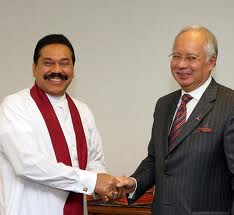 So, Malaysia’s commitment as a member of the UN Human Rights Council “towards enriching the quality of dialogue, cooperation and action aimed at advancing the promotion and protection of human rights globally” appears to be an empty proclamation bereft of sincerity. Its current love for Sri Lanka is not determined by its love for the people of Sri Lanka, be it Sinhalese or Tamils. It is the investment opportunity that the world’s number one enemy of human rights has offered to this country’s leadership. Sri Lanka claims that Malaysia is the leading investor in that country.
So, Malaysia’s commitment as a member of the UN Human Rights Council “towards enriching the quality of dialogue, cooperation and action aimed at advancing the promotion and protection of human rights globally” appears to be an empty proclamation bereft of sincerity. Its current love for Sri Lanka is not determined by its love for the people of Sri Lanka, be it Sinhalese or Tamils. It is the investment opportunity that the world’s number one enemy of human rights has offered to this country’s leadership. Sri Lanka claims that Malaysia is the leading investor in that country.
Human rights are not commodities for sale. Malaysia should never even think of trading in human rights for investment opportunities in Sri Lanka or any other country. Malaysians do and will condemn such moves by the leaders of this country. Follow the First Prime Minister Tunku Abdul Rahman and vote for the American resolution on Sri Lanka and make the Malaysians walk with their chests held up; or else, the leadership must face the consequences.
























